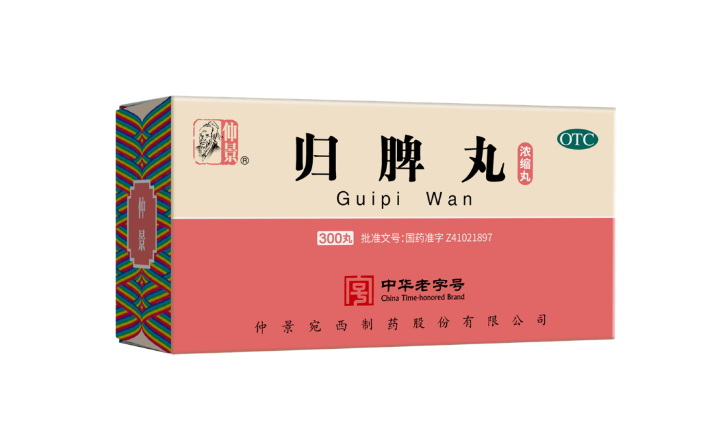Feeling Often Insomniac and Fatigued? You May Be Experiencing Deficiency of Heart and Spleen
After entering autumn and winter, in order to prevent stomach diseases, it is necessary to pay attention to keeping warm, preventing the invasion of cold pathogens, eating less cold drinks, and regulating diet.
2025/01/22
Good sleep is crucial for people. However, some people frequently suffer from insomnia, dreaminess, dizziness, poor appetite, and fatigue. These conditions lead to a lack of motivation to do anything, resulting in feelings of distraught and low energy during the day.

Traditional Chinese Medicine (TCM) believes that the spleen is the foundation of the body and the source of qi and blood. Damage to the spleen and stomach can manifest as fatigue, dull complexion, tiredness in limbs, discomfort, and a preference for lying down in quietness.
The heart houses the spirit, so many sleep issues are related to the heart health.
Excessive mental burdens and prolonged stress can cause the body to lose its self-regulatory abilities, leading to dysfunction of the endocrine and immune systems.
What is Deficiency of Heart and Spleen?
Deficiency of heart and spleen refers to a simultaneous presence of insufficient heart blood and weakened spleen Qi. Common symptoms include a pale complexion, insomnia accompanied by dreaminess, fatigue, mental tension, anxiety, decreased memory, poor appetite, palpitations, shortness of breath, and other symptoms.
Patients with deficiency of heart and spleen can appropriately take Gui Pi Pills. The main ingredients in Gui Pi Pills, such as Radix Codonopsis, Stir-fried Rhizoma Atractylodis Macrocephalae, Honey-fried Radix Astragali, Poria, Radix Polygalae, Stir-fried Semen Ziziphi Spinosae, Arillus Longan, Radix Angelicae Sinensis, Radix Aucklandiae, are known for their effects in tonifying Qi, invigorating the spleen, nourishing the heart, and calming the spirit.

How to Alleviate Symptoms of Deficiency of Heart and Spleen in Daily Life?
1. Pay Attention to Diet
For patients with deficiency of both the heart and spleen, the diet should be light. Avoid overeating and try to have more meals a day but less food at each.
2. Moderate Exercise
Choose suitable exercises based on personal conditions. Appropriate exercise can help improve sleep quality.
3. Adjust Emotions
In daily life, pay attention to adjusting your emotions. Keep a happy mood. You can listen to music and learn to relieve stress.
Caution
If symptoms of deficiency of both heart and spleen, such as insomnia, dreaminess, dizziness, and fatigue, consider using some traditional Chinese medicine, such as Gui Pi Pills.

Gui Pi Pills is a classic prescription for tonifying qi and blood, invigorating spleen, tranquilizing, used for dual deficiency of the heart-spleen, shortness of breath, palpitations, insomnia, dreaminess, dizziness, fatigue, shortness of breath, poor appetite. In the “Ji Sheng Fang”, a medical book from the Southern Song Dynasty, the physician Yan Yonghe introduced Gui Pi Tang, where "Gui Pi" means “directing blood back to the spleen,” restoring the spleen’s natural functions.
Among the main ingredients of Gui Pi Pills, Radix Codonopsis, Stir-fried Rhizoma Atractylodis Macrocephalae, Honey-fried Radix et Rhizoma Glycyrrhizae, Honey-fried Radix Astragali, and Radix Angelicae Sinensis have the effects of invigorating the spleen, tonifying qi, and nourishing blood. Radix Polygalae, Stir-fried Semen Ziziphi Spinosae, Poria, and Arillus Longan primarily nourish the heart and spleen and tranquilizing. Additionally, Radix Aucklandiae can regulate qi and soothe the spleen.
Caution:
1. For OTC medicines, it is recommended to follow the instructions or consult a doctor before use. Please read the instructions carefully before taking.
2. Prescription medicines should be taken under the guidance of a professional physician.
3. Medication should be used with caution. TCM emphasizes syndrome differentiation and treatment, and medications vary based on different conditions. Therefore, if you feel unwell, it is advisable to promptly consult a professional physician at a local formal hospital.
4. For patients with chronic conditions such as hypertension, heart disease, liver disease, etc., if you feel unwell, it is recommended to promptly consult a professional physician at a hospital instead of self-medicating.
undefined


